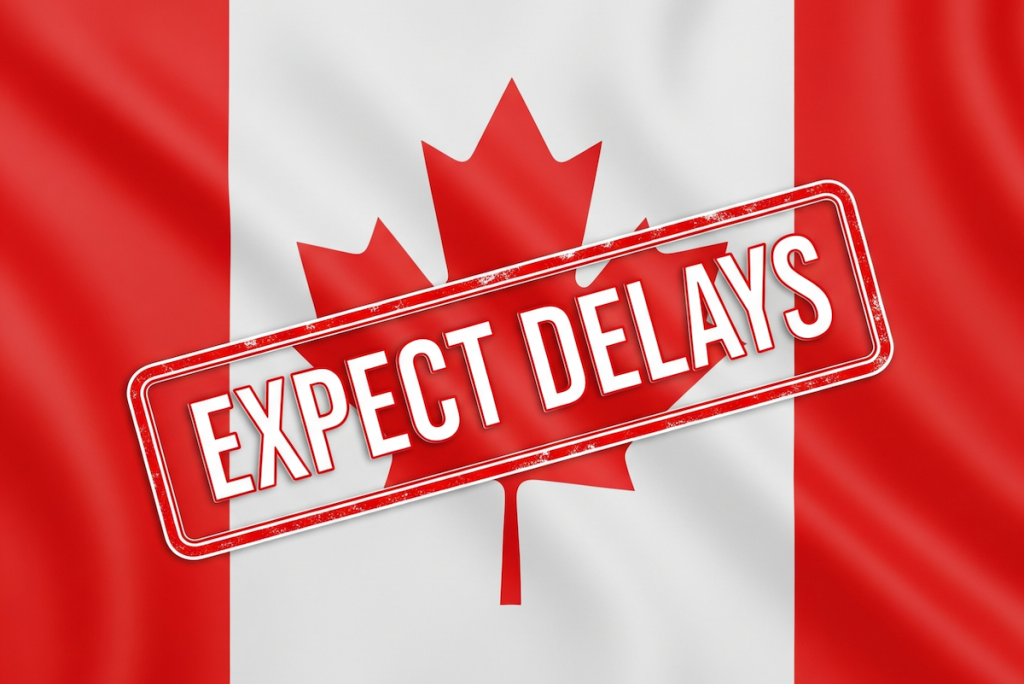Introduction
Canada’s Immigration system underpins the country’s economic growth and social diversity. In mid‑2025, Immigration, Refugees and Citizenship Canada (IRCC) reported a backlog of 802,000 applications—far beyond its service standards. This backlog has sparked concern among prospective immigrants and Canadian employers alike, raising important questions about the system’s efficiency, transparency, and capacity. In this article, we delve deep into the current state of Canada’s immigration processing delays, uncovers the systemic and logistical factors behind the growing backlog, and provides practical advice for applicants who are navigating this uncertain landscape. Whether you’re applying for permanent residence, a work permit, or family sponsorship, this comprehensive guide will help you better understand the challenges—and potential solutions—within Canada’s immigration system in 2025.
Table of Contents
1. Canada’s Immigration Backlog Overview
-
Total applications in process: 2,117,800
-
Applications within service standards: 1,315,800 (62%)
-
Backlogged applications: 802,000 (38%)
| Category | Total | Within Standards | Backlogged | Backlog % |
|---|---|---|---|---|
| Citizenship | 246,600 | 200,300 | 46,300 | 19% |
| Permanent Residence | 897,900 | 495,500 | 402,400 | 45% |
| Temporary Residence | 973,300 | 620,000 | 353,300 | 36% |
| Total | 2,117,800 | 1,315,800 | 802,000 | 38% |
This backlog strains families, workers, and students. Canada’s Immigration goals for 2025–2027 aim to welcome 395,000 new permanent residents in 2025, then 380,000 in 2026, and 365,000 in 2027. Source: IRCC Immigration Levels Plan
2. Canada’s Immigration Citizenship Backlog
Citizenship grants full rights, including voting and a Canadian passport.
-
In‑process applications: 246,600
-
Within service standards (12 months): 200,300 (81%)
-
Backlogged: 46,300 (19%)
| Metric | Count |
|---|---|
| Total citizenship applications | 246,600 |
| Processed within 12 months | 200,300 |
| Exceeded 12‑month target (backlogged) | 46,300 |
| New citizens (Apr 1–May 31, 2025) | 42,800 |
Canada’s Immigration service standard for citizenship is 80% within 12 months. At 81%, IRCC barely meets its target, yet 46,300 applicants still wait beyond 365 days. Delays affect access to benefits and a sense of belonging.
3. Canada’s Immigration Permanent Residence Backlog
Permanent residents build long‑term careers and communities in Canada.
-
Total PR applications: 897,900
-
Within service standards: 495,500 (55%)
-
Backlogged: 402,400 (45%)
| Metric | Count |
|---|---|
| Total PR applications | 897,900 |
| Processed within target (6–12 months, by stream) | 495,500 |
| Exceeded target (backlogged) | 402,400 |
| Decisions made (Jan 1–May 31, 2025) | 193,000 |
| New PRs admitted (Jan 1–May 31, 2025) | 168,550 |
At 55% on‑time processing, Canada’s Immigration system misses its 80% goal by 25 points. Backlog growth can deter skilled workers and delay family reunification. For example, Express Entry candidates face disrupted career plans when processing stretches beyond published times.
4. Canada’s Immigration Temporary Residence Backlog
Study permits, work permits, and visitor visas keep Canada competitive.
-
Total applications: 973,300
-
Within service standards: 620,000 (64%)
-
Backlogged: 353,300 (36%)
| Metric | Count |
|---|---|
| Total temporary residence applications | 973,300 |
| Processed within published times | 620,000 |
| Exceeded published times (backlogged) | 353,300 |
| Study permits issued (Jan 1–May 31) | 227,800 |
| Work permits issued (Jan 1–May 31) | 591,200 |
At 64%, the on‑time rate falls 16 points below IRCC’s 80% target. Delays force students to defer programs and workers to miss job start dates. Institutions report lost tuition revenue; employers face staffing gaps.
5. Why the Backlog Persists
-
High Volume: Global demand surged post‑pandemic.
-
Resource Limits: IRCC needs more officers, technology upgrades, and funding.
-
Complex Requirements: Streams like family sponsorship and refugee protection require detailed verification.
-
External Disruptions: COVID‑19, geopolitical conflicts, and policy shifts slowed processing.
Despite welcoming over 211,000 newcomers in the first five months of 2025, Canada’s Immigration system struggles to match its ambitious targets. Source: IRCC Annual Report
6. Practical Steps for Applicants
If you face delays, follow these actions:
-
Monitor Status
-
Log in to the IRCC portal.
-
Upload any outstanding documents promptly.
-
-
Seek Expert Advice
-
Consult a regulated immigration consultant or lawyer.
-
Use resources from the College of Immigration and Citizenship Consultants.
-
-
Stay Updated
-
Subscribe to IRCC news updates.
-
Check the Processing Times page regularly.
-
-
Explore Alternatives
-
Temporary residents: consider bridging open work permits if you qualify.
-
PR applicants: check provincial nominee programs with shorter waits.
-
-
Plan Flexibly
-
Build extra time into study or work start dates.
-
Maintain travel flexibility in case visa dates shift.
-
7. Conclusion
Canada’s Immigration backlog—802,000 delayed applications—signals a system under stress. Citizenship processing meets targets but still leaves tens of thousands waiting. Permanent and temporary residence streams operate well below service standards. Families, students, and workers face uncertainty.
Addressing this challenge requires IRCC to scale resources, streamline requirements, and leverage technology. Meanwhile, applicants must stay proactive: monitor their cases, seek expert help, and plan alternative pathways. Only with joint effort can Canada’s Immigration system restore timely service and uphold its promise of opportunity.
Maple Crest Immigration Law Firm
Ready to move forward with your immigration journey? Contact Maple Crest Law today for personalized guidance on speeding up your immigration application, resolving delays, and ensuring your documents meet all requirements. Book a consultation session now and let our expert team turn your Canadian dream into reality.




